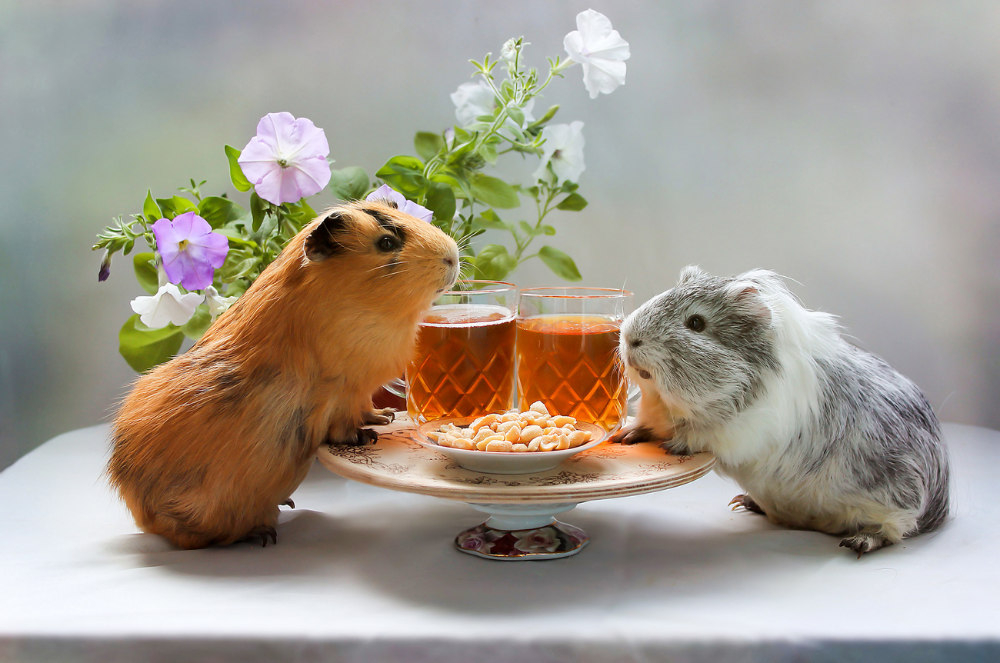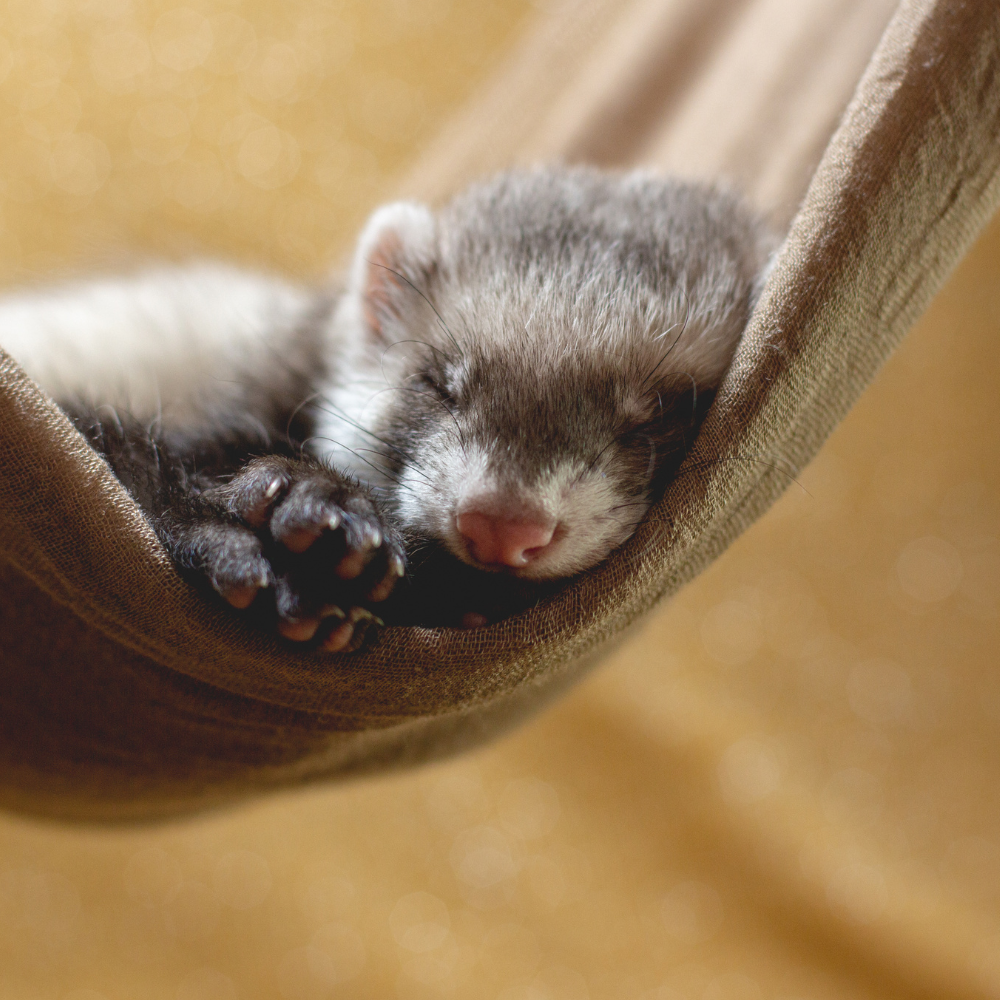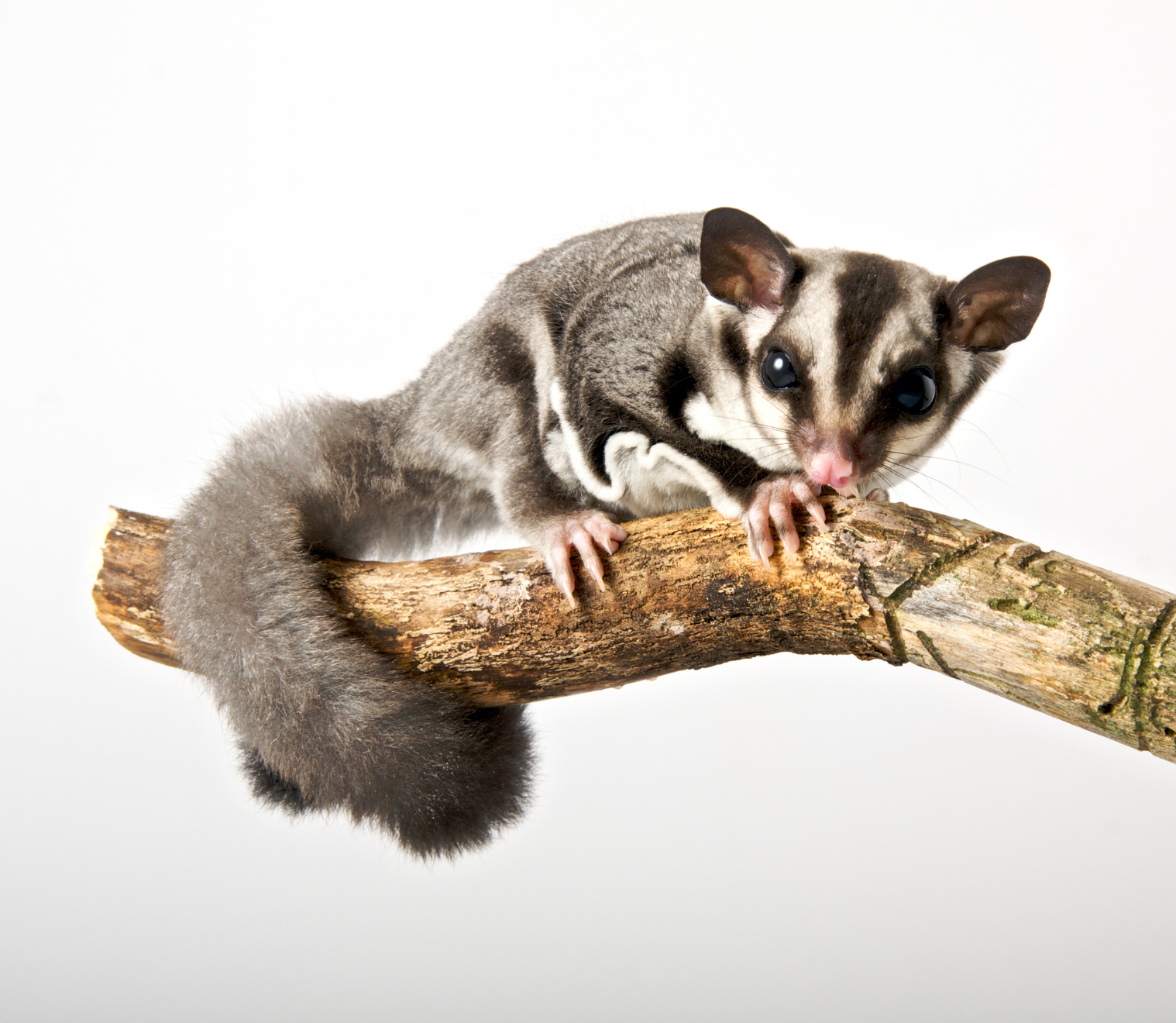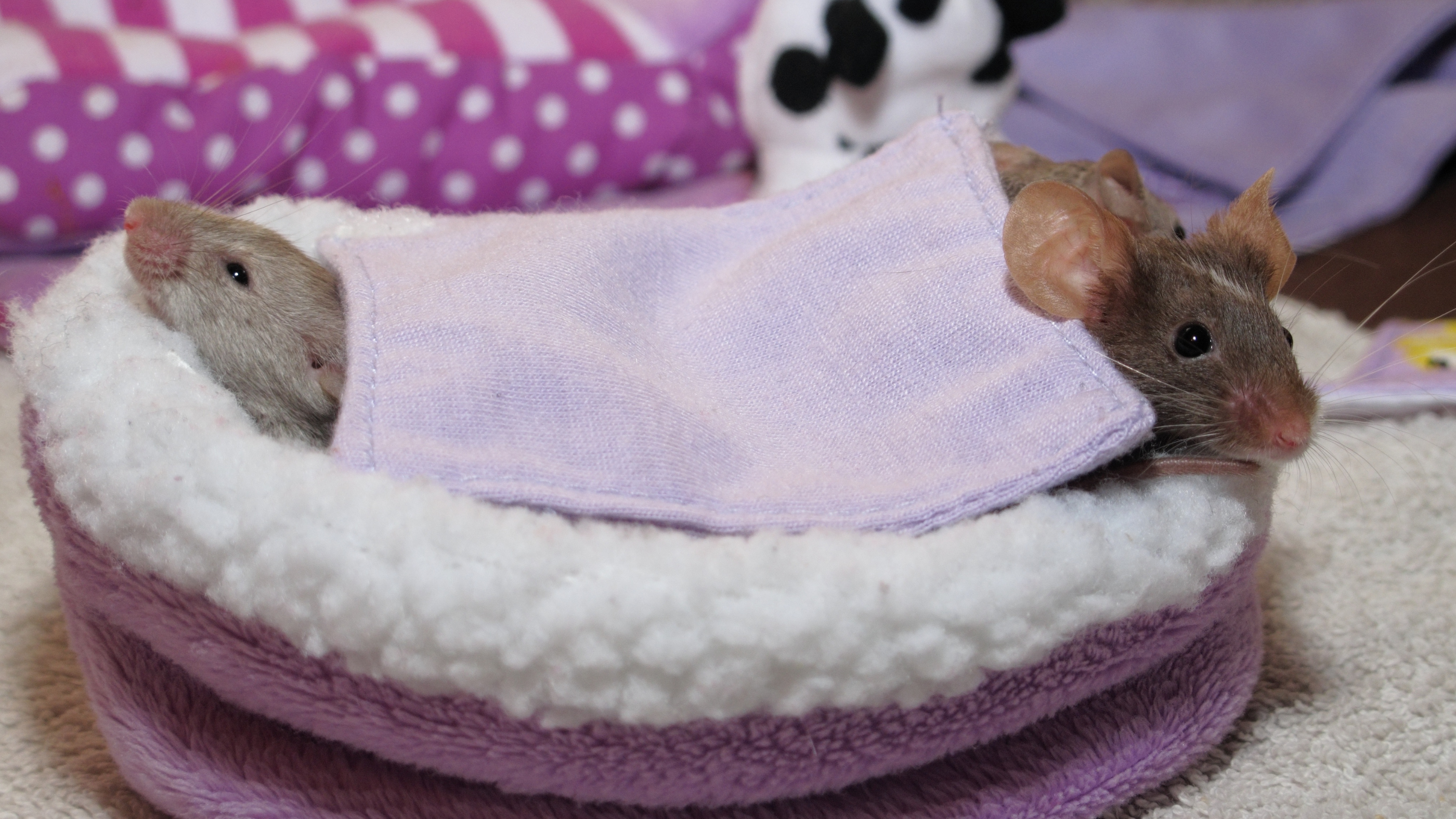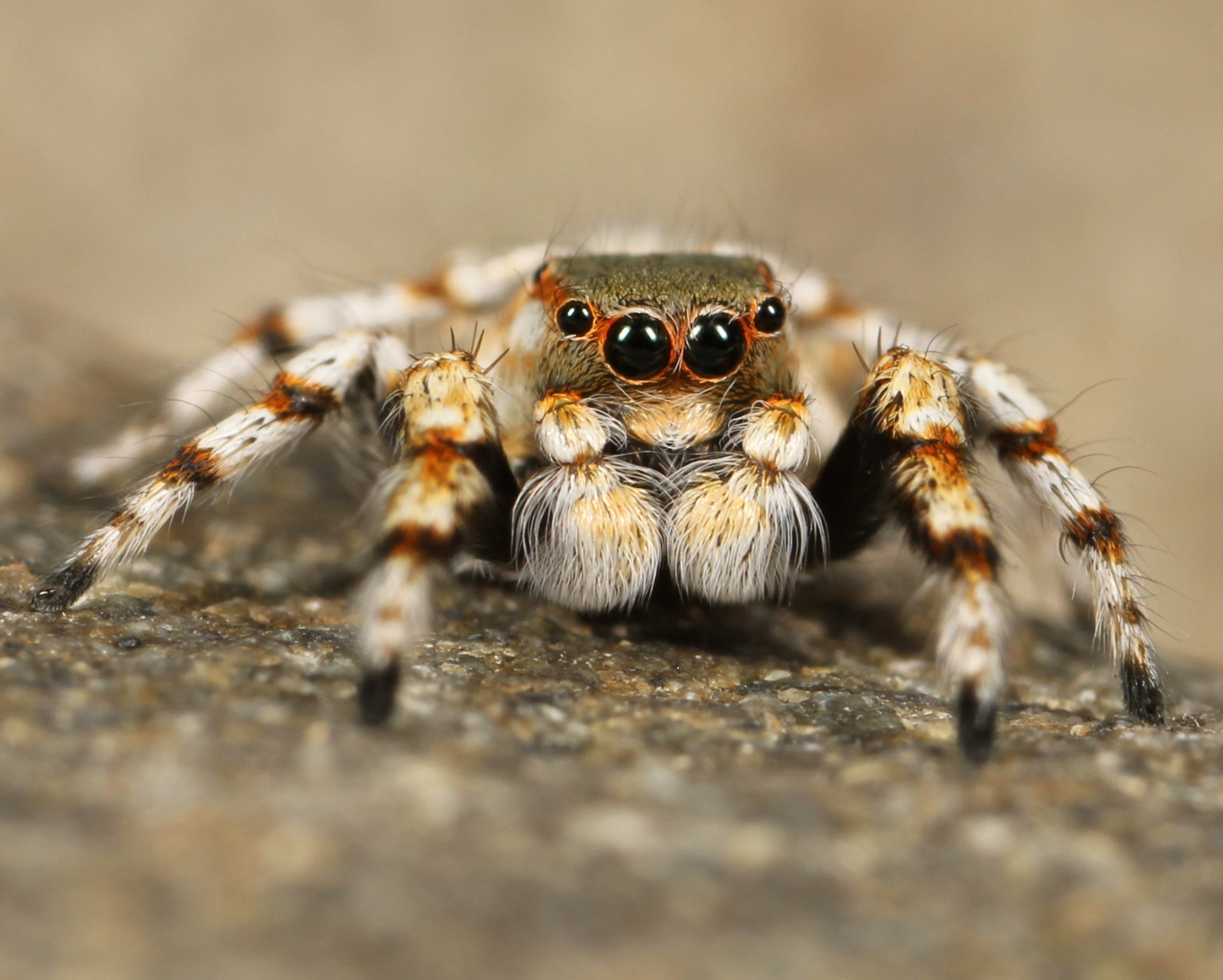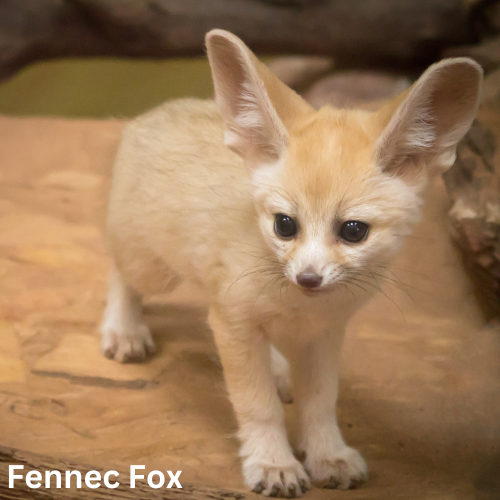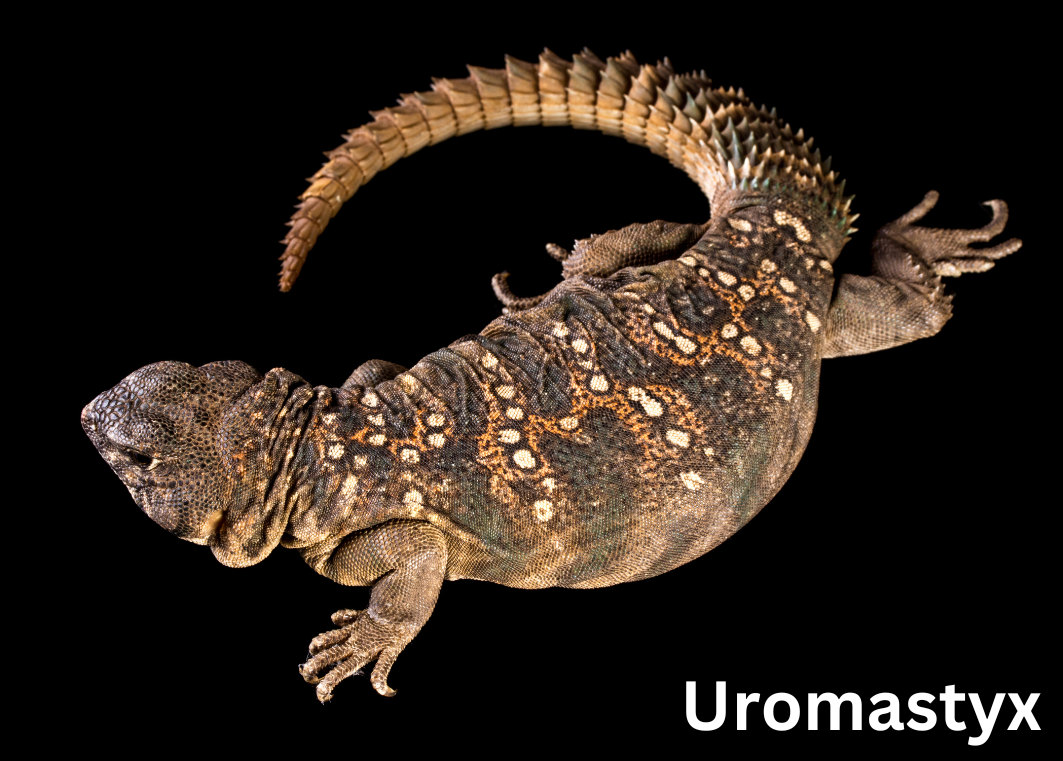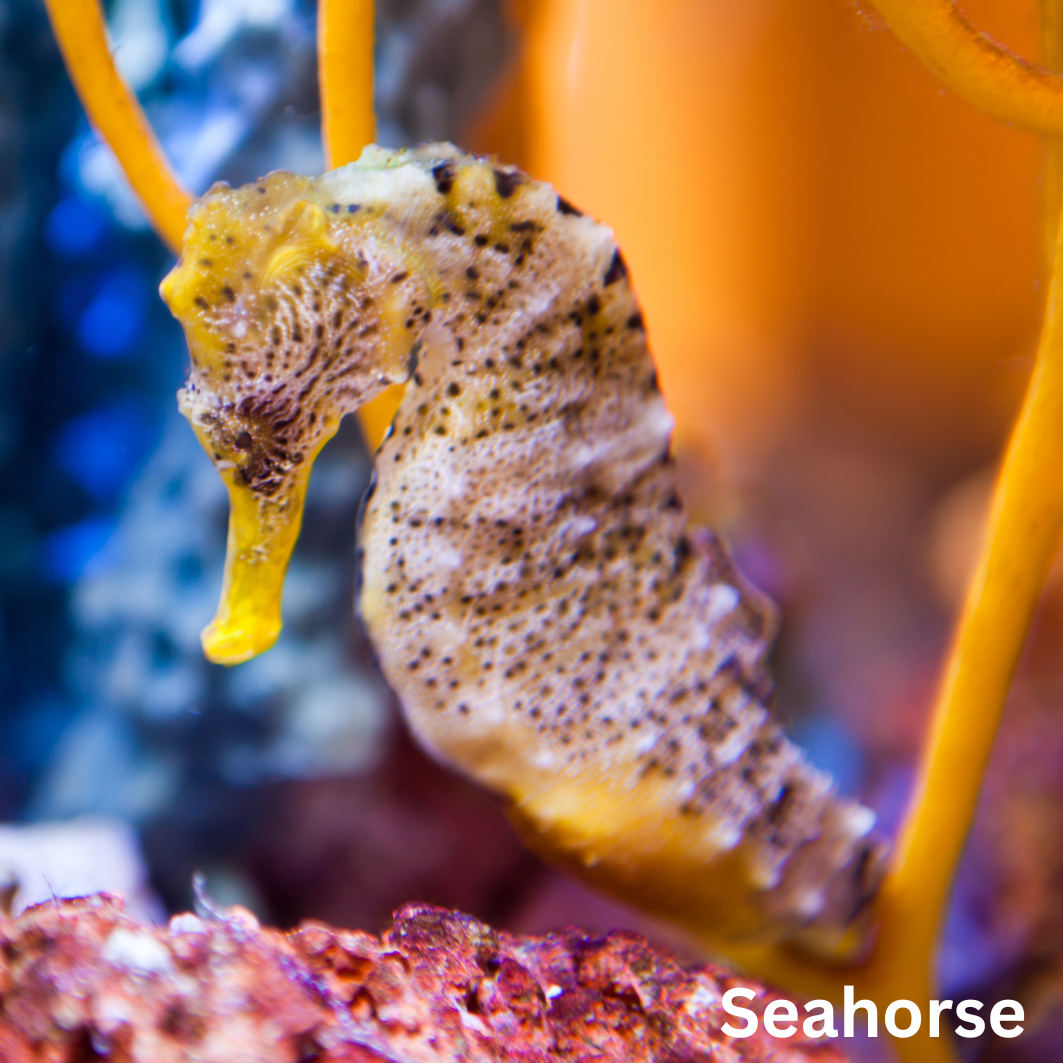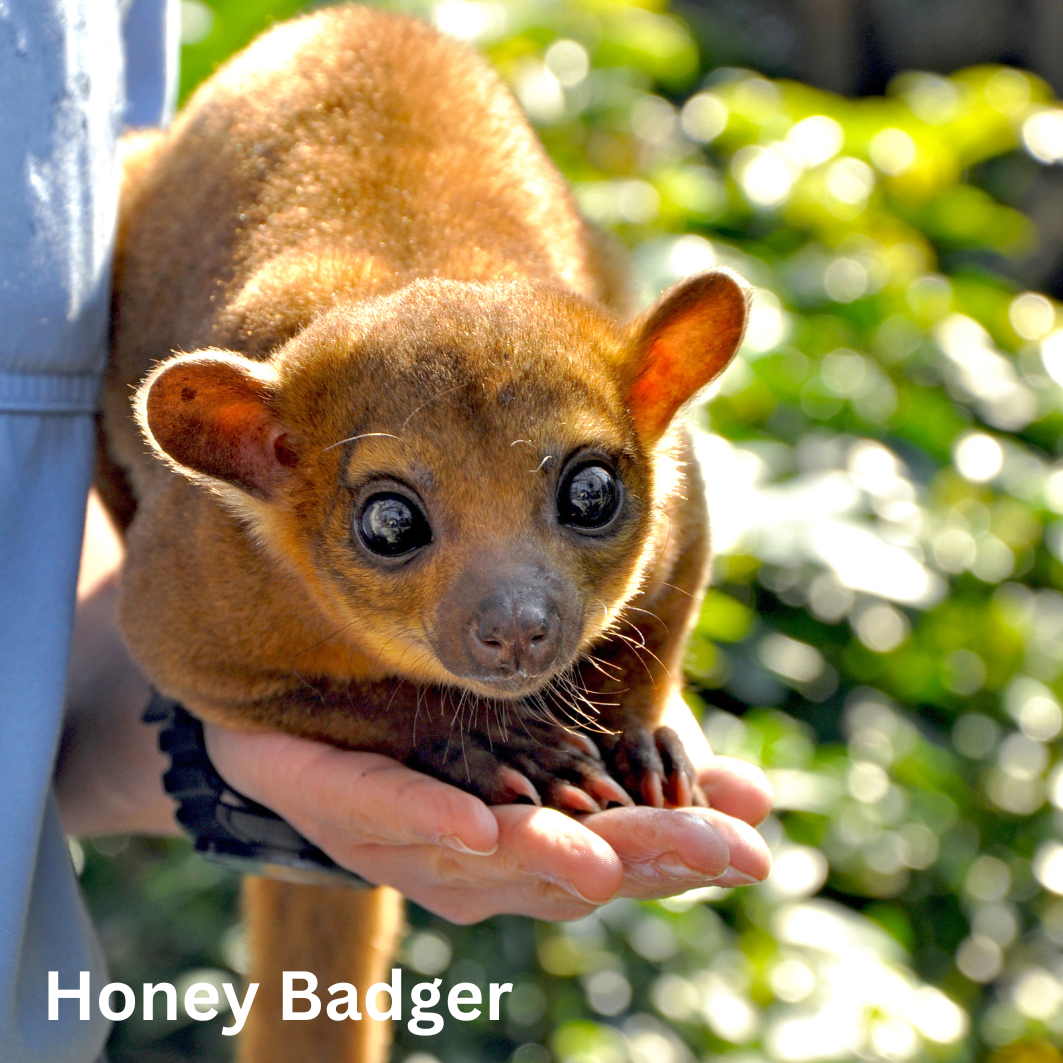Discover the Perfect Pet for Your Home
Your Ultimate Guide to Pet Care
Explore detailed care guides, feeding tips, and enclosure advice for a variety of unique pets including bunnies, hamsters, guinea pigs, ferrets, hedgehogs, sugar gliders, ferrets, mice and rats and even spiders and terantulas!
Don't Forget
About Butler!
Butler is our Ai Powered helper. You will find him on every page in the bottom right corner.
Ask Butler a question and Butler will fetch your answer in the blink of an eye.
Give Butler a try to find that perfect companion.
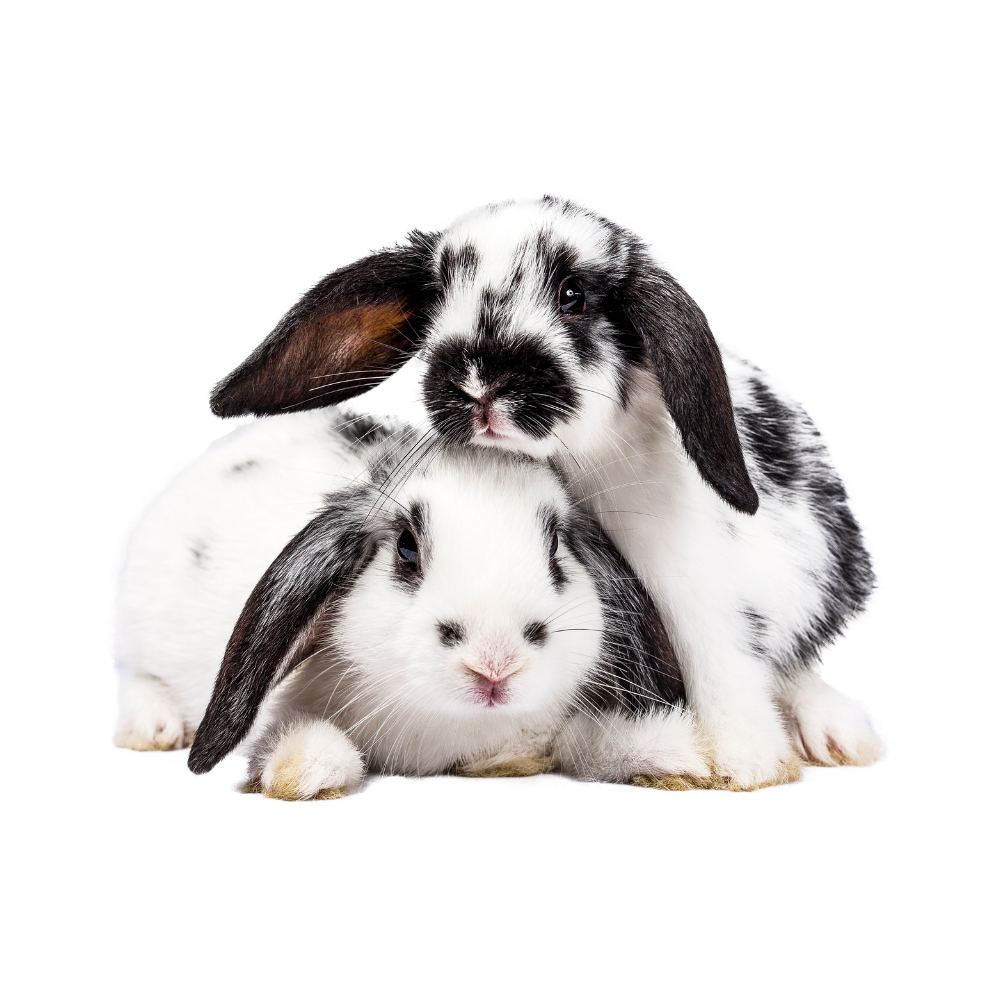

Charming Chinchillas: Your Guide to Happy, Healthy Furballs
Chinchillas are delightful pets known for their soft, dense fur and playful personalities. Caring for a chinchilla requires attention to their unique needs, ensuring they thrive in your home.
Enclosure: A spacious, multi-level cage is ideal for chinchillas, providing ample room for jumping and exploring. The cage should be well-ventilated, with solid flooring to protect their delicate feet. Include hiding spots, tunnels, and chew toys to keep them mentally and physically stimulated.
Diet: A balanced diet is crucial for a chinchilla’s health. Provide high-quality hay, such as timothy or orchard grass, as the main component of their diet. Supplement with chinchilla pellets, avoiding those with added seeds or dried fruits. Fresh water should always be available, using a sipper bottle to prevent contamination.
Grooming: Chinchillas maintain their luxurious fur through regular dust baths. Provide a dust bath house and a specialized chinchilla dust two to three times a week. Avoid water baths, as their dense fur can retain moisture, leading to skin issues.
Health: Regular vet check-ups are essential to monitor for common health problems like dental issues or digestive concerns. Provide a stress-free environment and handle your chinchilla gently to build trust and reduce anxiety.
By understanding and meeting their needs, you can ensure your chinchilla lives a long, happy, and healthy life, bringing joy to your home with their charming antics.
To learn more about chinchillas and proper care, please visit this Amazon link. If you make a purchase we may earn a small commission.
Chinchilla FAQ's

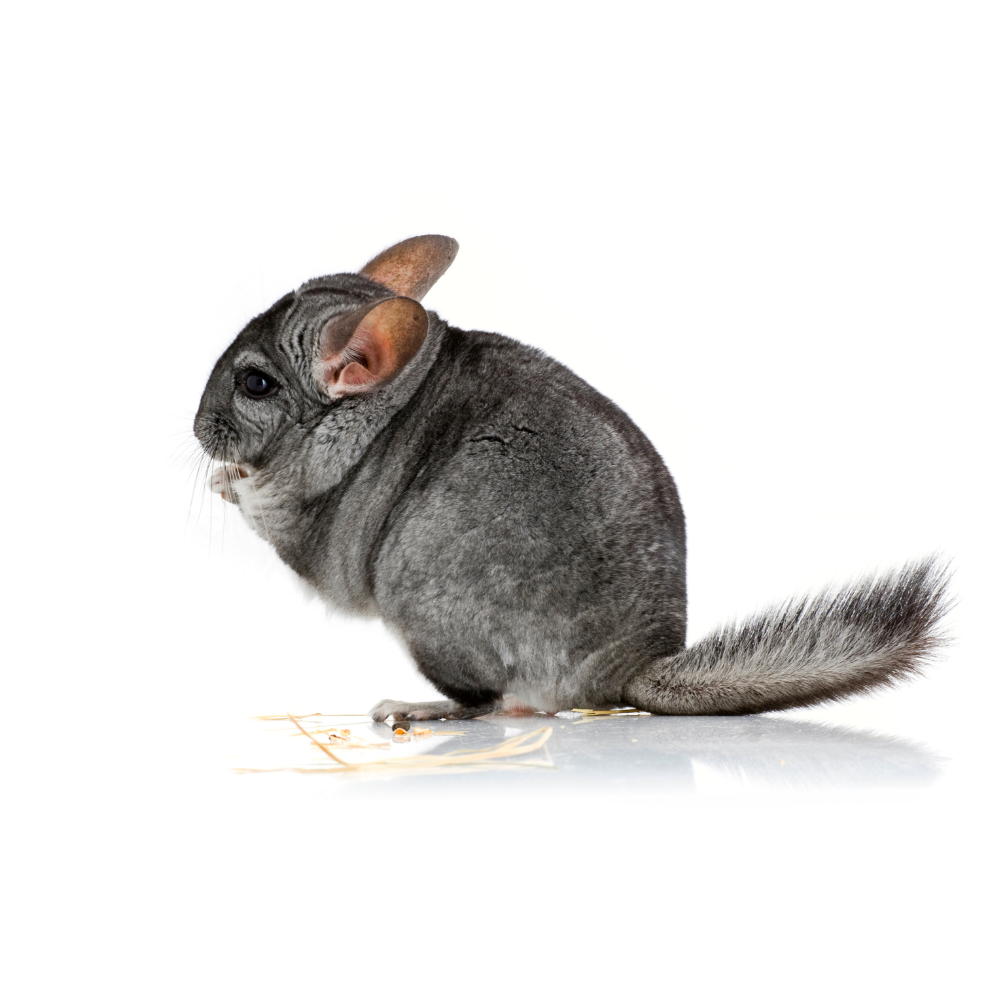
How often should I clean my chinchilla's cage?
You should clean your chinchilla’s cage at least once a week to maintain a healthy environment.
What is the best diet for a chinchilla?
A balanced diet of hay, pellets, and fresh water is essential for a chinchilla’s health.
How much space does a chinchilla need?
Chinchillas need a spacious cage with multiple levels to climb and explore, ideally at least 24x24x24 inches.
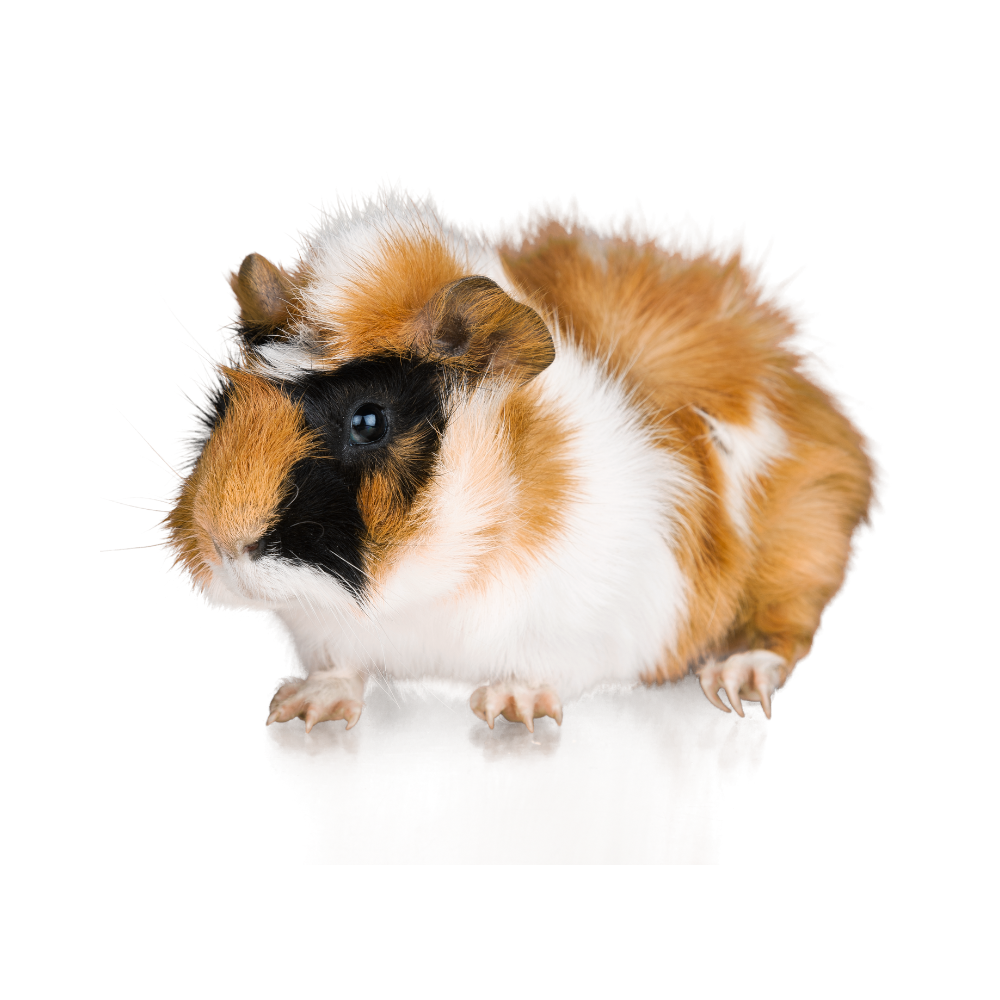
Guinea Pig Bliss: Your Guide to Cuddly Companions
Guinea pigs are endearing pets, known for their gentle nature and social behavior. Providing proper care ensures these adorable creatures live happy and healthy lives.
Housing: A spacious, well-ventilated cage with a solid floor is essential. Provide cozy bedding, hiding spots, and plenty of room for exercise.
Diet: A balanced diet includes high-quality guinea pig pellets, fresh hay, and a variety of fresh vegetables. Ensure they have a constant supply of fresh water.
Social Needs: Guinea pigs thrive on companionship, so consider having more than one. Daily interaction and gentle handling strengthen the bond between you and your pets.
Health: Regular veterinary check-ups and maintaining a clean habitat prevent common health issues.
With the right care, your guinea pigs will be happy, healthy, and a delightful part of your family.
To learn more about Guinea Pigs and specialty products, please visit this Amazon link. If you make a purchase we may earn a small commission.
Guinea Pigs FAQ
What should I feed my guinea pig?
Fresh hay, vegetables, and a small amount of pellets are ideal. Avoid sugary treats.
How often should I clean the cage?
Clean the cage at least once a week, and spot clean daily to remove waste.
What type of bedding is best?
Use paper-based bedding or fleece liners. Avoid cedar or pine shavings.
How much space does a guinea pig need?
A single guinea pig needs at least 7.5 square feet of space. More space is always better.
Do guinea pigs need companionship?
Yes, guinea pigs are social animals and thrive in pairs or small groups.
Hoppy Haven: Your Guide to Happy Pet Bunnies
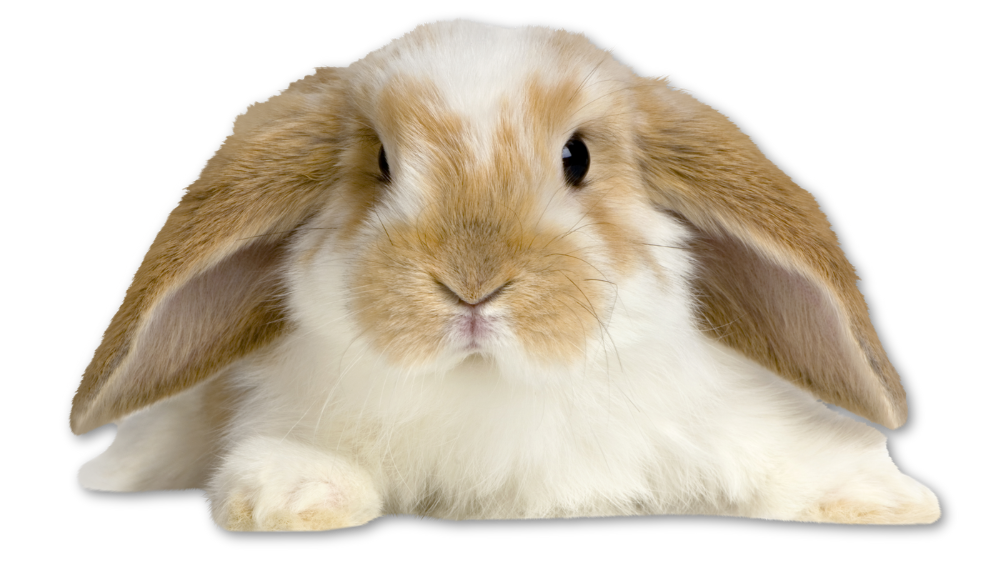
Pet bunnies are charming and affectionate companions, bringing joy with their playful hops and gentle nature. Ensuring their well-being requires attention to their specific needs.
Housing: Provide a spacious, secure enclosure with enough room for hopping and stretching. Include cozy hiding spots and a litter box. Allow supervised time outside the enclosure for exercise and exploration.
Diet: A balanced diet is vital. Offer unlimited hay, fresh vegetables, and high-quality rabbit pellets. Fresh water should always be available, preferably in a sipper bottle.
Grooming: Regular grooming keeps their fur in good condition. Brush their coat weekly to prevent matting and check their nails for trimming needs.
Social Needs: Bunnies thrive on social interaction. Spend quality time with your bunny daily, providing gentle handling and playtime.
Health: Regular vet visits ensure your bunny remains healthy. Keep their living area clean and monitor for any signs of illness.
With proper care, your bunny will thrive, offering endless joy and companionship.
To learn more about pet bunnies and specialty products, please visit this Amazon link. If you make a purchase we may earn a small commission.
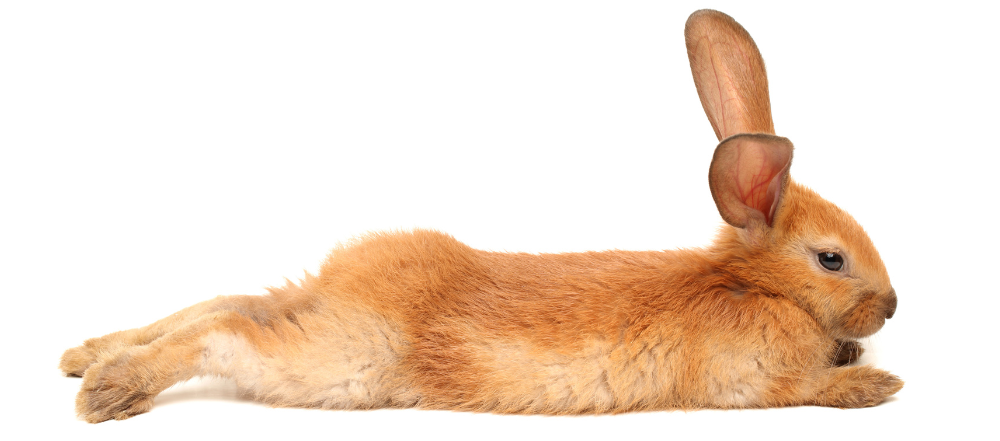
Bunny FAQ's
What should I feed my bunny?
A diet of hay, fresh vegetables, and a small amount of pellets is best.
How often should I clean the litter box?
Clean the litter box daily to maintain hygiene and prevent odors.
What type of enclosure is suitable for a bunny?
A spacious pen or a large cage with room to hop and play is ideal.
Do bunnies need exercise?
Yes, bunnies need daily exercise outside their enclosure to stay healthy.
How can I bond with my bunny?
Spend time with your bunny daily, offering gentle petting and treats to build trust.


Ready to Dive Deeper into Bunnies and Ferrets?
Ask Butler!
Butler is our Ai Powered helper. You will find him on every page in the bottom right corner.
Ask Butler a question and Butler will fetch your answer in an instant.
Fantastic Ferrets: Your Guide to Furry Fun and Care
Ferrets are energetic and curious pets, known for their playful antics and mischievous charm. Providing the right care ensures they live happy, healthy lives.
Housing: Ferrets need a spacious, multi-level cage with secure latches. Include hammocks, tunnels, and hiding spots to keep them entertained. Allow supervised playtime outside the cage to satisfy their curiosity and need for exploration.
Diet: A balanced diet is crucial. Feed high-quality ferret food, rich in protein and fat, along with occasional treats like cooked eggs or meat. Fresh water should always be available in a sturdy dish or water bottle.
To learn more about ferrets and their care, please visit this Amazon link. If you make a purchase we may receive a small commission.

Grooming: Regular grooming keeps ferrets looking their best. Brush their fur weekly and clean their ears as needed. Bathing should be done sparingly to avoid drying out their skin.
Social Needs: Ferrets are social animals that thrive on interaction. Spend quality time playing and bonding with your ferret daily.
Health: Regular vet check-ups and vaccinations are essential. Keep their living area clean and ferret-proof your home to prevent accidents.
With the right care, your ferret will be a delightful and engaging companion, bringing endless fun to your home.
Ferret Care FAQs
What should I feed my ferret?
Ferrets require a high-protein, high-fat diet. Feed them high-quality ferret food, which is specially formulated to meet their nutritional needs. You can also offer occasional treats like cooked eggs or meat. Avoid feeding them fruits, vegetables, or grains, as their digestive systems are not designed to process these foods.
How much exercise do ferrets need?
Ferrets are highly active animals and need at least 2-4 hours of supervised playtime outside their cage each day. This helps them stay physically fit and mentally stimulated. Provide a variety of toys, tunnels, and climbing opportunities to keep them engaged.
How do I litter train my ferret?
Ferrets can be litter trained with patience and consistency. Place a litter box in their cage and in their play area. Use a litter designed for small animals, and clean the box regularly. Reward your ferret with treats and praise when they use the litter box correctly. Consistency is key to successful training.
How often should I groom my ferret?
Regular grooming is important for ferret health. Brush their fur weekly to remove loose hair and prevent matting. Check and clean their ears as needed, and trim their nails regularly. Bathing should be done sparingly, as frequent baths can dry out their skin.
What are common health issues in ferrets?
Ferrets can be prone to certain health issues, including adrenal disease, insulinoma, and dental problems. Regular veterinary check-ups and vaccinations are essential to monitor and maintain their health. Be observant of any changes in behavior, appetite, or energy levels, and consult a vet if you notice any concerning symptoms.
Prickly Pals: Your Guide to Happy Hedgehogs
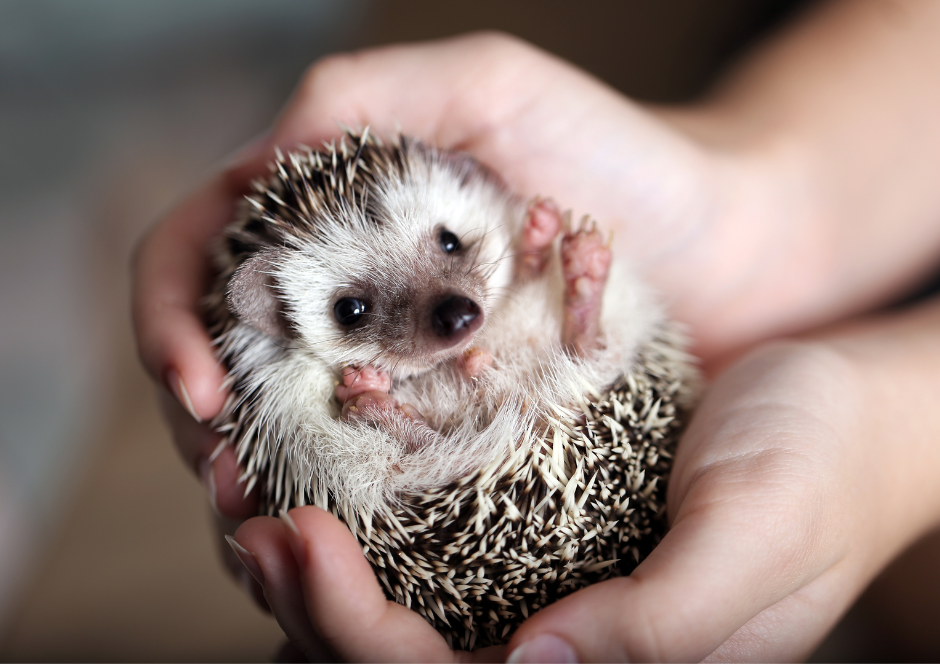
Grooming: Hedgehogs are relatively low-maintenance, but regular nail trimming and occasional baths help keep them clean. Use a toothbrush to gently clean their quills.
Social Needs: Hedgehogs are solitary but benefit from daily interaction with their owners. Handle them gently and regularly to build trust and reduce stress.
Health: Regular vet visits are essential to monitor for common health issues like dental disease and obesity. Keep their living area clean and provide mental stimulation to ensure their well-being.
With proper care, your hedgehog will thrive, becoming a delightful and intriguing companion.
To learn more about hedgehogs and specialty products please visit this Amazon page. If you make a purchase we may receive a small commission.
Hedgehog Care FAQs
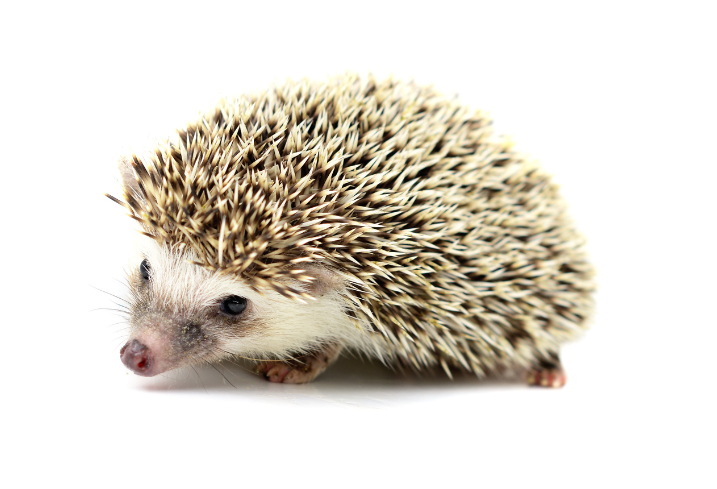
Hedgehogs are unique and fascinating pets, known for their distinctive spines and adorable faces. Caring for a hedgehog involves meeting their specific needs to ensure a healthy and happy life.
Housing: Provide a spacious, well-ventilated enclosure with smooth sides to prevent escape. Include hiding spots, a wheel for exercise, and a shallow dish for bathing. Maintain a temperature between 72-80°F to keep your hedgehog comfortable.
Diet: Hedgehogs require a balanced diet consisting of high-quality hedgehog food or a mix of premium cat food. Supplement with insects, fruits, and vegetables in moderation. Ensure fresh water is always available.
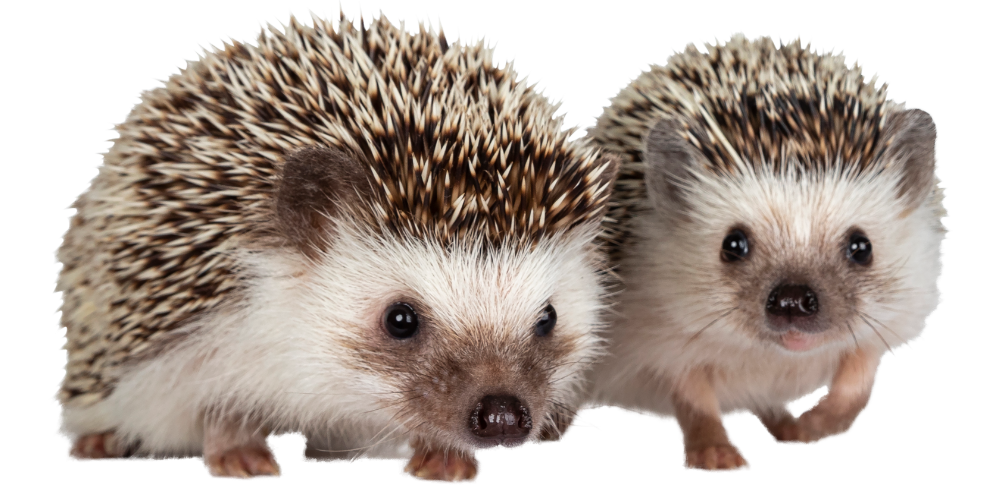
What do hedgehogs eat?
Hedgehogs require a balanced diet of high-quality hedgehog food or premium cat food. You can also offer insects like mealworms and crickets, along with small amounts of fruits and vegetables. Avoid foods high in fat or sugar, as well as nuts, seeds, and dairy products.
How should I set up a hedgehog's enclosure?
A spacious, well-ventilated enclosure with smooth sides is essential to prevent escape. Include a solid exercise wheel, hiding spots, and bedding made from paper-based materials. Maintain a consistent temperature between 72-80°F to keep your hedgehog comfortable.
How often should I handle my hedgehog?
Hedgehogs are solitary animals but benefit from daily interaction with their owners. Handle your hedgehog gently and regularly to build trust and reduce stress. Start with short sessions and gradually increase the time as your hedgehog becomes more comfortable.
Do hedgehogs need baths?
Hedgehogs do not require frequent baths. However, occasional baths can help keep them clean, especially if they get dirty or have a skin condition. Use a gentle, unscented baby shampoo or a special hedgehog shampoo, and rinse thoroughly. Dry them completely to prevent chilling.
What are common health issues in hedgehogs?
Hedgehogs can be prone to health issues such as obesity, dental disease, and skin conditions like mites or fungal infections. Regular vet check-ups are crucial for early detection and treatment. Be observant of any changes in behavior, appetite, or physical appearance, and consult a vet if you notice any concerning symptoms.
Gliding Joy: Your Guide to Playful Sugar Gliders
Sugar gliders are small, nocturnal marsupials known for their ability to glide through the air and their social, playful nature. These fascinating pets require specific care to thrive in a home environment.
Housing: Provide a tall, spacious cage with plenty of branches, pouches, and toys to mimic their natural habitat. Ensure the cage is secure and escape-proof.
Diet: A balanced diet includes fresh fruits, vegetables, insects, and a specially formulated sugar glider diet. Offer fresh water daily.
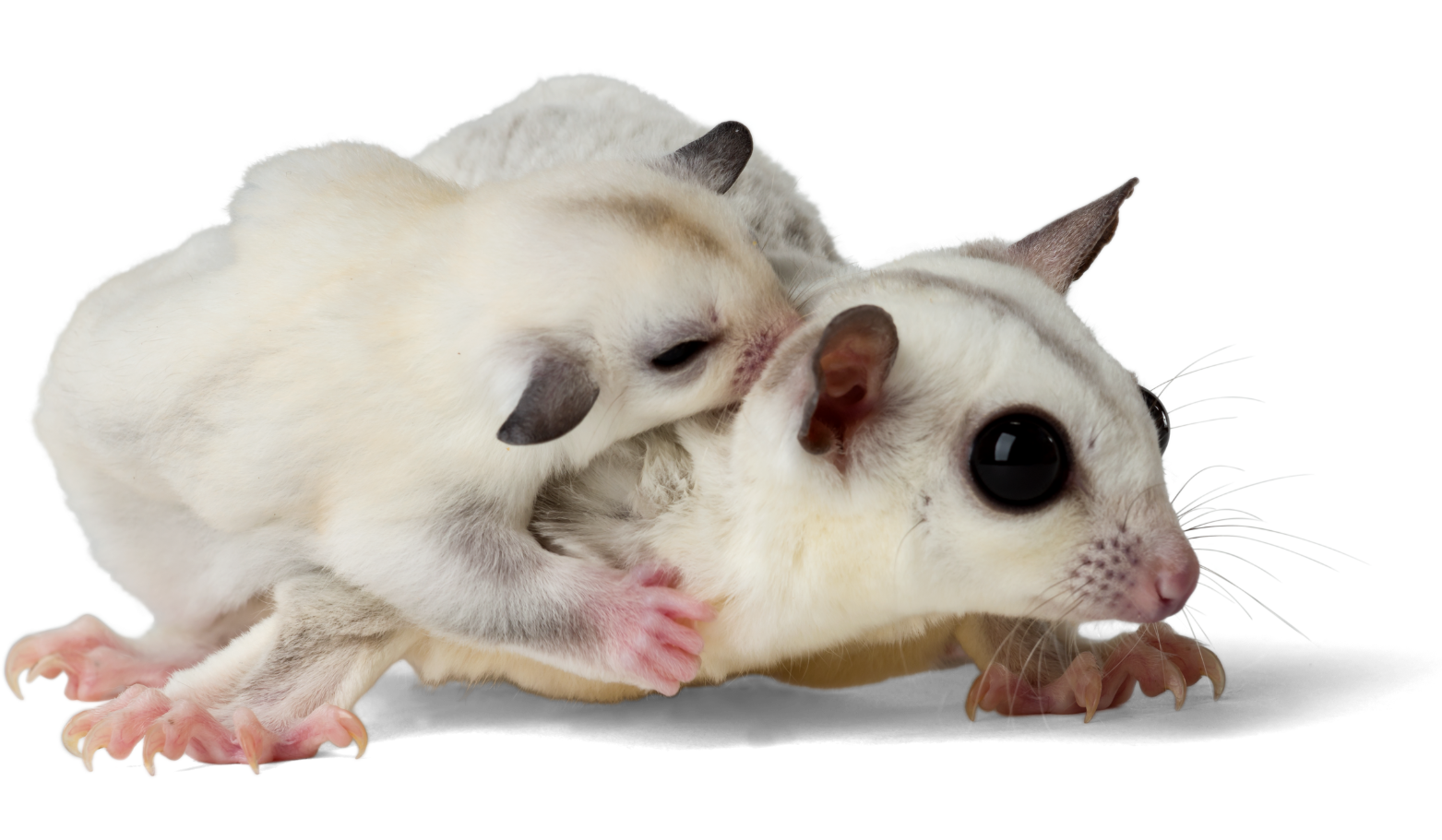
Social Needs: Sugar gliders are highly social and thrive in pairs or small groups. Spend time interacting with them daily to build a strong bond.
Health: Regular vet check-ups are essential. Monitor for signs of illness, such as lethargy or changes in appetite.
With the right care, sugar gliders make delightful and entertaining companions.
To learn more about sugar gliders and specialty products please visit this Amazon link. If you make a purchase we may make a small commission.
FAQs on Sugar Gliders
What do sugar gliders eat?
Sugar gliders require a varied diet that includes fresh fruits, vegetables, insects, and a specially formulated sugar glider food. It’s important to provide a balanced diet to meet their nutritional needs.
How much space do sugar gliders need
Sugar gliders need a tall, spacious cage to allow for climbing and gliding. The cage should be equipped with branches, pouches, and toys to keep them entertained and mimic their natural environment.
Are sugar gliders social animals?
Yes, sugar gliders are highly social animals and do best when kept in pairs or small groups. They require daily interaction with their owners to remain happy and healthy.
How often should I handle my sugar glider?
Handle your sugar glider daily to build trust and strengthen your bond. Start with short, gentle sessions and gradually increase the time as your glider becomes more comfortable.
What are common health issues in sugar gliders?
Sugar gliders can be prone to health issues such as obesity, dental problems, and nutritional deficiencies. Regular veterinary check-ups are crucial for early detection and treatment of any health concerns.

Ready to Learn About Pet Mice, Rats, and Tarantulas?
Ask Butler!
Butler is our Ai Powered helper. You will find him on every page in the bottom right corner.
Ask Butler a question and watch Butler fetch your answer in the blink of an eye.
Give Butler a try to find that perfect companion.
Tiny Tails: Your Guide to Happy Pet Mice
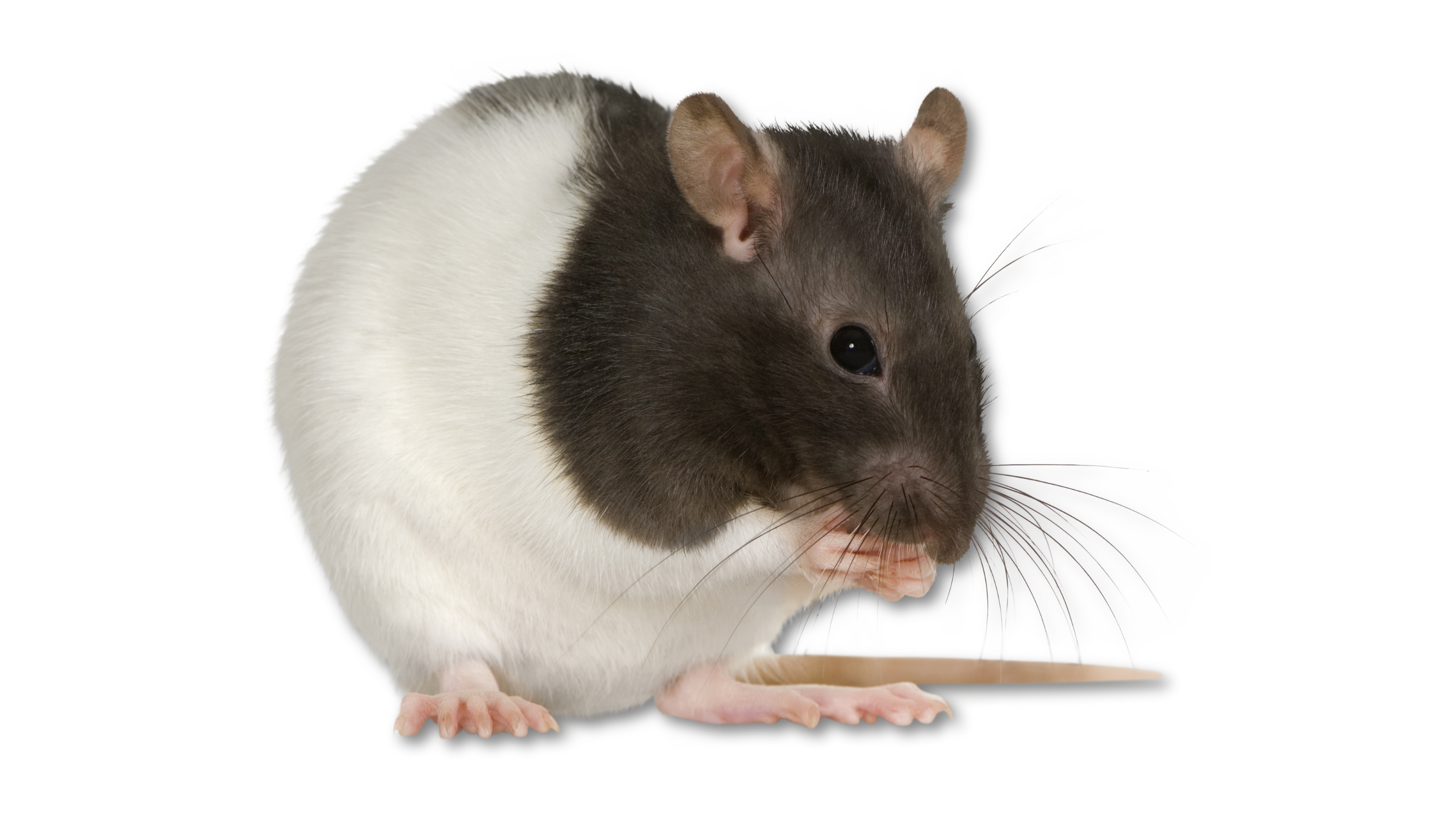
FAQs on Pet Mice
How should I set up a mouse's cage?
A spacious, well-ventilated cage with hiding spots, tunnels, and toys is ideal. Use paper-based bedding to keep them comfortable and clean the cage regularly.
What do pet mice eat?
Feed your pet mice a high-quality mouse food and supplement with small amounts of fresh fruits and vegetables. Ensure they always have fresh water available.
Are mice social animals?
Yes, mice are social and do best in pairs or small groups. Regular interaction with their owners helps keep them engaged and builds trust.
Your content goes here. Edit or remove this text inline or in the module Content settings. You can also style every aspect of this content in the module
Pet mice are charming and inquisitive companions, known for their small size and playful behavior. These tiny rodents are easy to care for with the right setup.
Housing: Provide a spacious, well-ventilated cage with plenty of hiding spots, tunnels, and toys. Use paper-based bedding to keep them comfortable.
Diet: Feed high-quality mouse food supplemented with fresh fruits and vegetables. Ensure they have constant access to fresh water.
Social Needs: Mice are social animals and thrive in pairs or small groups. Regular interaction with their owners helps build trust and keeps them engaged.
settings and even apply custom CSS to this text in the module Advanced settings.
Rat-tastic Friends: Guide to Smart Pet Rats
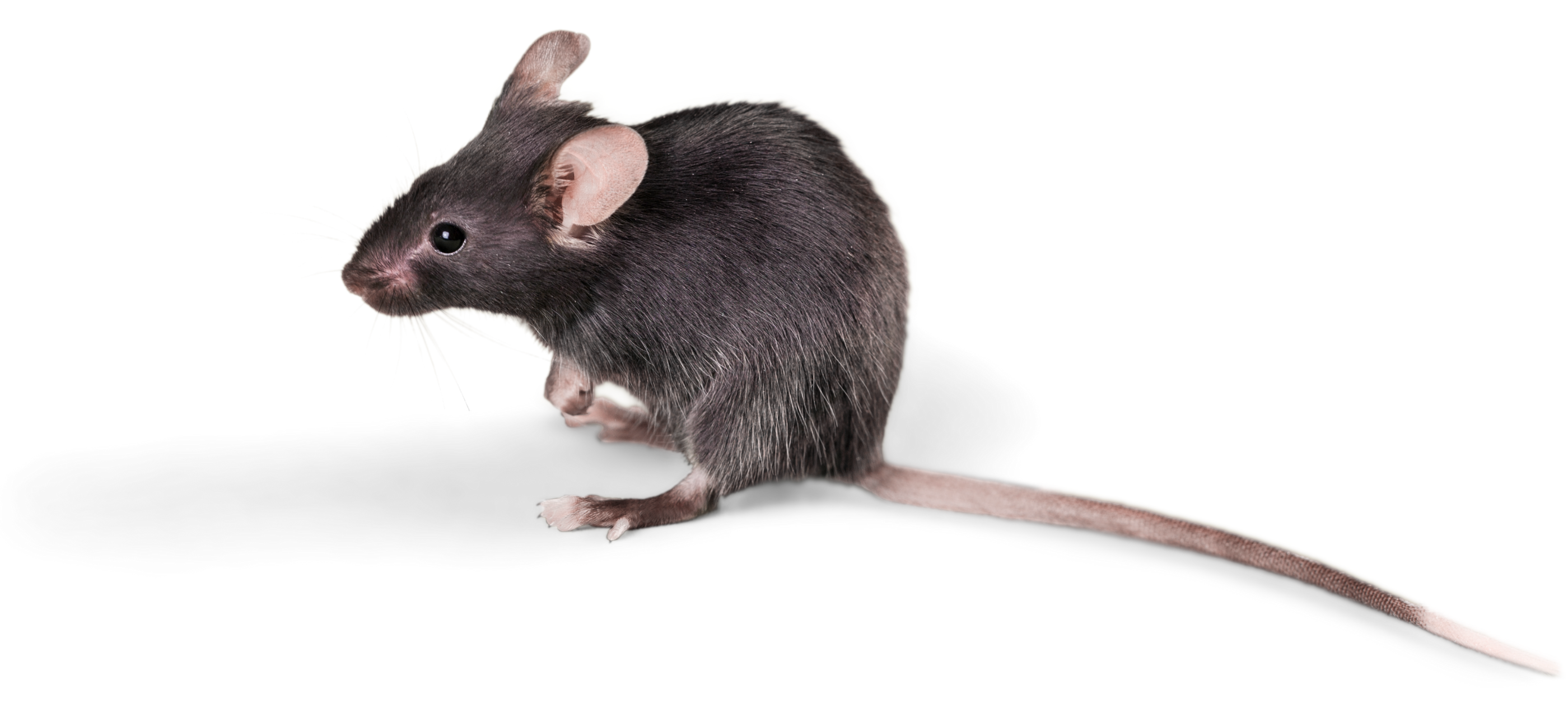
Pet rats are intelligent, affectionate, and highly social companions, making them wonderful pets for both children and adults. Known for their playful nature and curiosity, rats quickly form strong bonds with their owners and can even be trained to perform simple tricks.
Housing: Rats require a spacious, multi-level cage that provides ample room for climbing, exploring, and playing. Include plenty of hiding spots, tunnels, and chew toys to keep them mentally and physically stimulated. Use paper-based bedding to ensure comfort and cleanliness.
Diet: A balanced diet is essential for a rat’s health. Feed high-quality rat food and supplement with fresh fruits, vegetables, and occasional treats like cooked eggs or lean meat. Ensure they have constant access to fresh water, either in a sipper bottle or a sturdy dish.
Social Needs: Rats are social animals and thrive in pairs or small groups. Keeping at least two rats together is recommended to prevent loneliness and boredom. Regular interaction with their owners is crucial; spending time playing and handling your rats daily will help build trust and deepen your bond.
Health: Regular veterinary check-ups are important to monitor for common health issues such as respiratory infections and tumors. Keep their living area clean and provide a balanced diet to support their overall well-being.
With the right care and attention, pet rats can live happy, healthy lives, bringing endless joy and entertainment to your home.
To learn more about pet rats and specialty products, please visit this Amazon link. If you make a purchase we may earn a small commission.
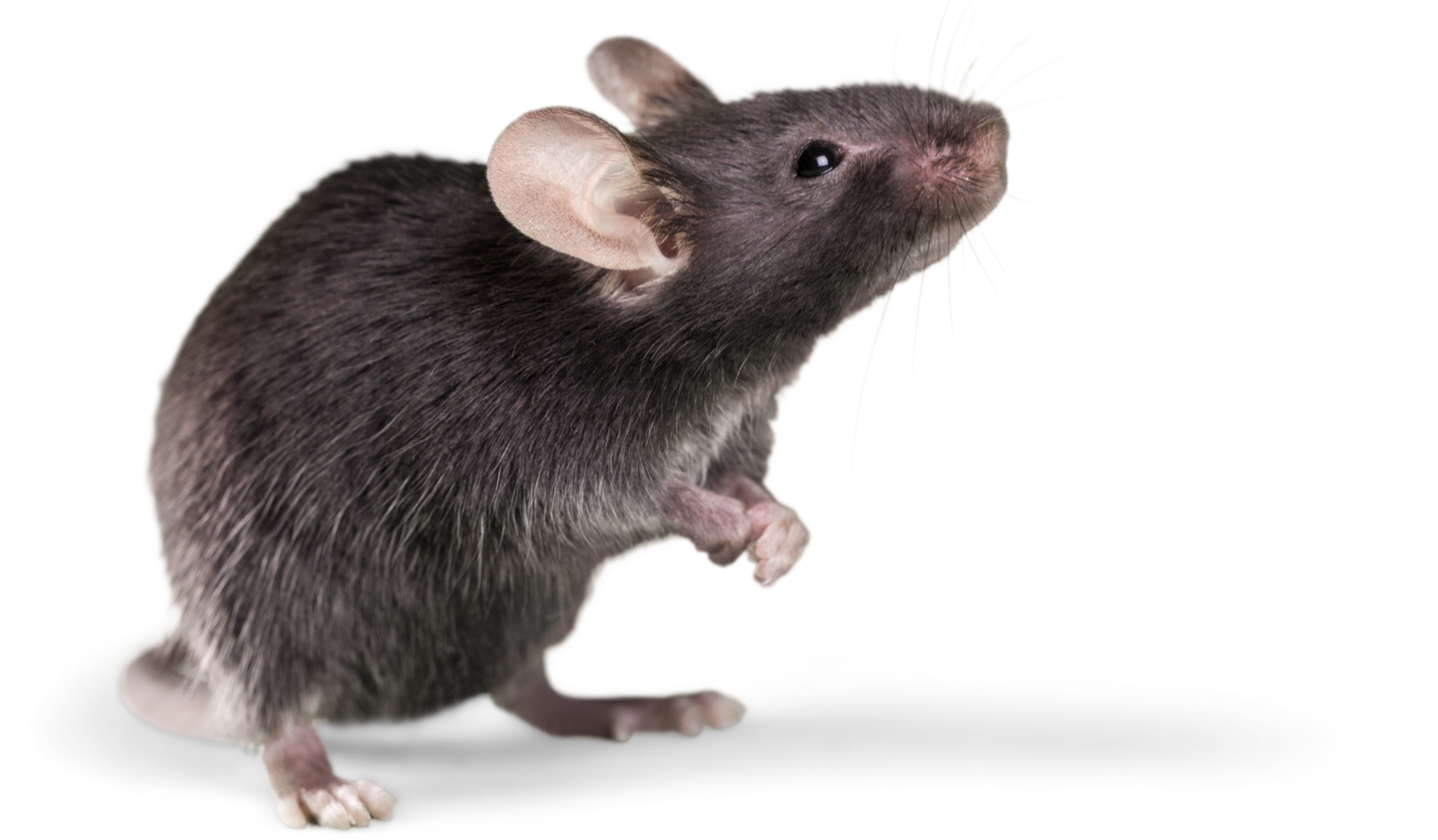
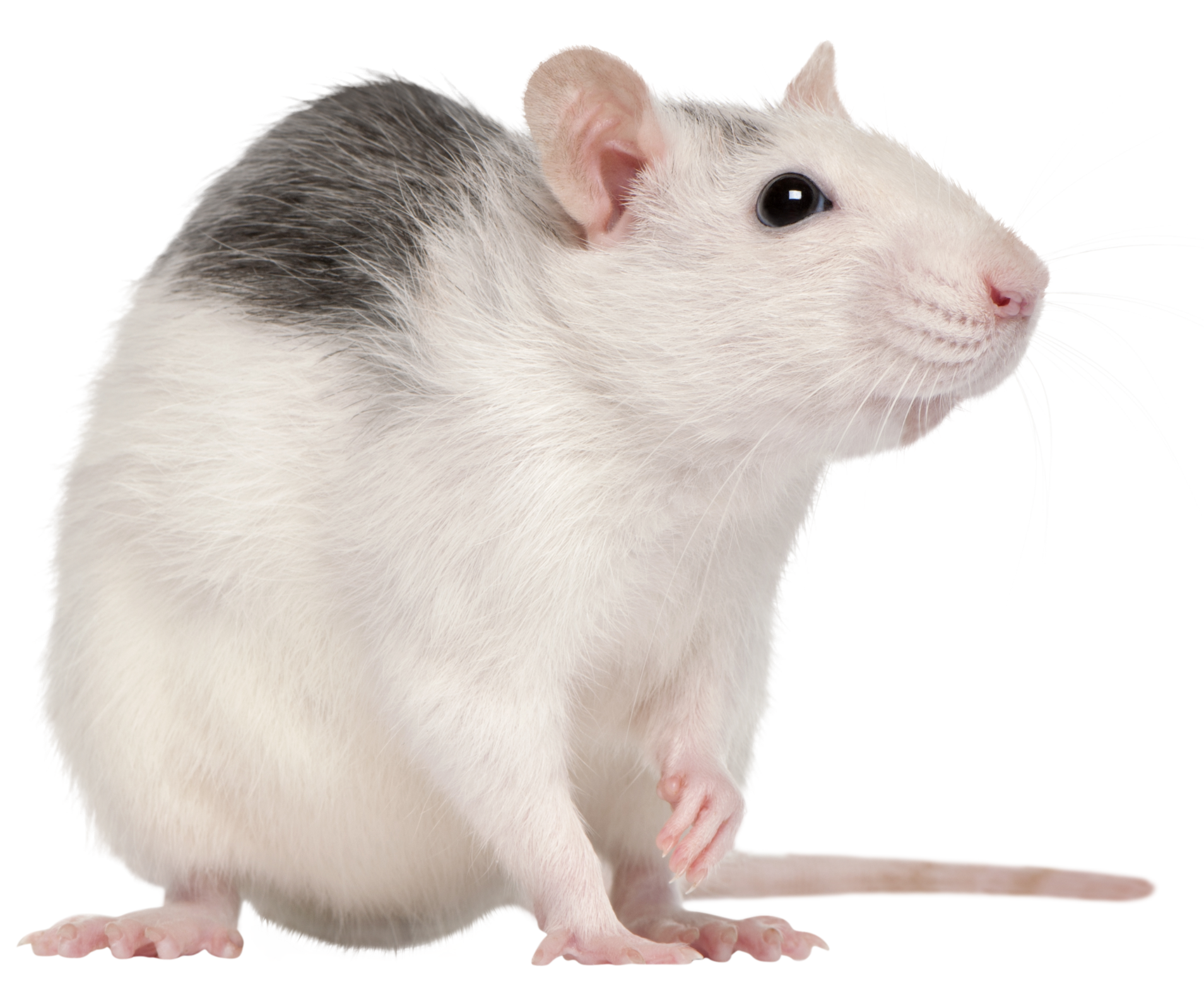
Pet Rat FAQ's
What should I feed my pet rat?
Feed your pet rat high-quality rat food, supplemented with fresh fruits, vegetables, and occasional treats. Always provide fresh water.
How should I set up a rat's cage?
A spacious, multi-level cage with climbing opportunities, hiding spots, and toys is ideal. Use paper-based bedding for comfort and clean the cage regularly.
Are rats social animals?
Yes, rats are highly social and thrive in pairs or groups. Daily interaction with their owners is essential for their well-being.
Tarantulas: The Ultimate in a Low-Maintenance Exotic Pet
Tarantulas, large and often hairy spiders from the family Theraphosidae, are popular pets due to their intriguing appearance and manageable care needs. With leg spans from 4.5 to over 10 inches, they come in various colors and patterns. Popular species include the Mexican Red Knee, Chilean Rose, and Greenbottle Blue.
Tarantulas are solitary and require minimal interaction, thriving in enclosures that mimic their natural habitats. Essential elements include a secure tank, substrate for burrowing, a hide, and a shallow water dish. Maintaining proper temperature and humidity is crucial.
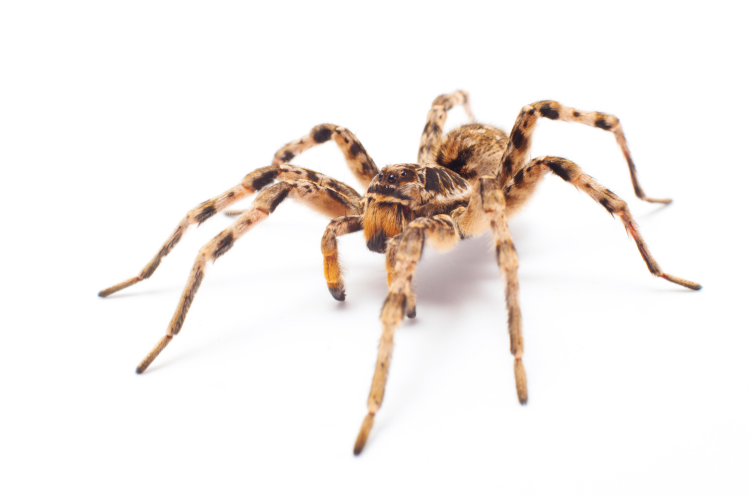
Feeding is infrequent, typically involving insects like crickets, roaches, and mealworms. Adult tarantulas eat only once a week or less, making them economical pets. They can endure long periods without food, especially during molting.
Handling is debated; some owners enjoy it, while others prefer observing. Tarantulas are delicate, and improper handling can cause stress or injury. Females can live 15 to 30 years, while males live 3 to 10 years, allowing for lasting bonds. Overall, tarantulas are intriguing, low-maintenance pets.
Other Pet Spiders
Other species of spiders that are suitable for pet spiders, although not recommended for novices, are Jumping Spiders, Wolf Spiders, Orb-Weaving Spiders, Trapdoor Spiders, and Fishing Spiders.
To learn more about pet spiders and specialty products, please visit this Amazon link. If you make a purchase we may earn a small commission.
FAQs on Pet Spiders
What should I feed my tarantula?
Tarantulas primarily eat live insects such as crickets, roaches, and mealworms. Larger species can also be fed the occasional pinky mouse or small lizard. It is important to provide a varied diet and ensure the prey is appropriately sized for your tarantula. Fresh water should always be available in a shallow dish.
How should I set up a tarantula's enclosure?
A tarantula’s enclosure should be escape-proof and provide adequate ventilation. The size of the enclosure should be at least three times the leg span of the tarantula in length and width, with enough height for terrestrial species to burrow or arboreal species to climb. Use substrate such as coconut fiber or soil, and include hiding spots like cork bark or clay pots. Maintain appropriate humidity and temperature levels specific to the species.
How often should I clean my tarantula's enclosure?
Tarantula enclosures do not need frequent cleaning. Spot-cleaning to remove uneaten prey and waste should be done regularly, while a more thorough cleaning can be done every 4-6 months. During a full cleaning, replace the substrate and clean all decorations and the enclosure itself.
Can I handle my tarantula?
While some tarantulas can be handled, it is generally not recommended. Handling can stress the tarantula and increase the risk of injury to both the spider and the owner. Tarantulas have delicate bodies and can be easily injured if dropped. Additionally, some species have urticating hairs that can cause irritation or even allergic reactions.
What are common health issues in tarantulas?
Tarantulas are generally hardy, but they can still face health issues such as mites, fungal infections, dehydration, and molting problems. To prevent these issues, maintain proper humidity, provide fresh water, and ensure a clean environment. Monitor your tarantula for any changes in behavior or appearance, and consult a veterinarian with experience in exotic pets if you notice any signs of illness.
Uncommon Pets
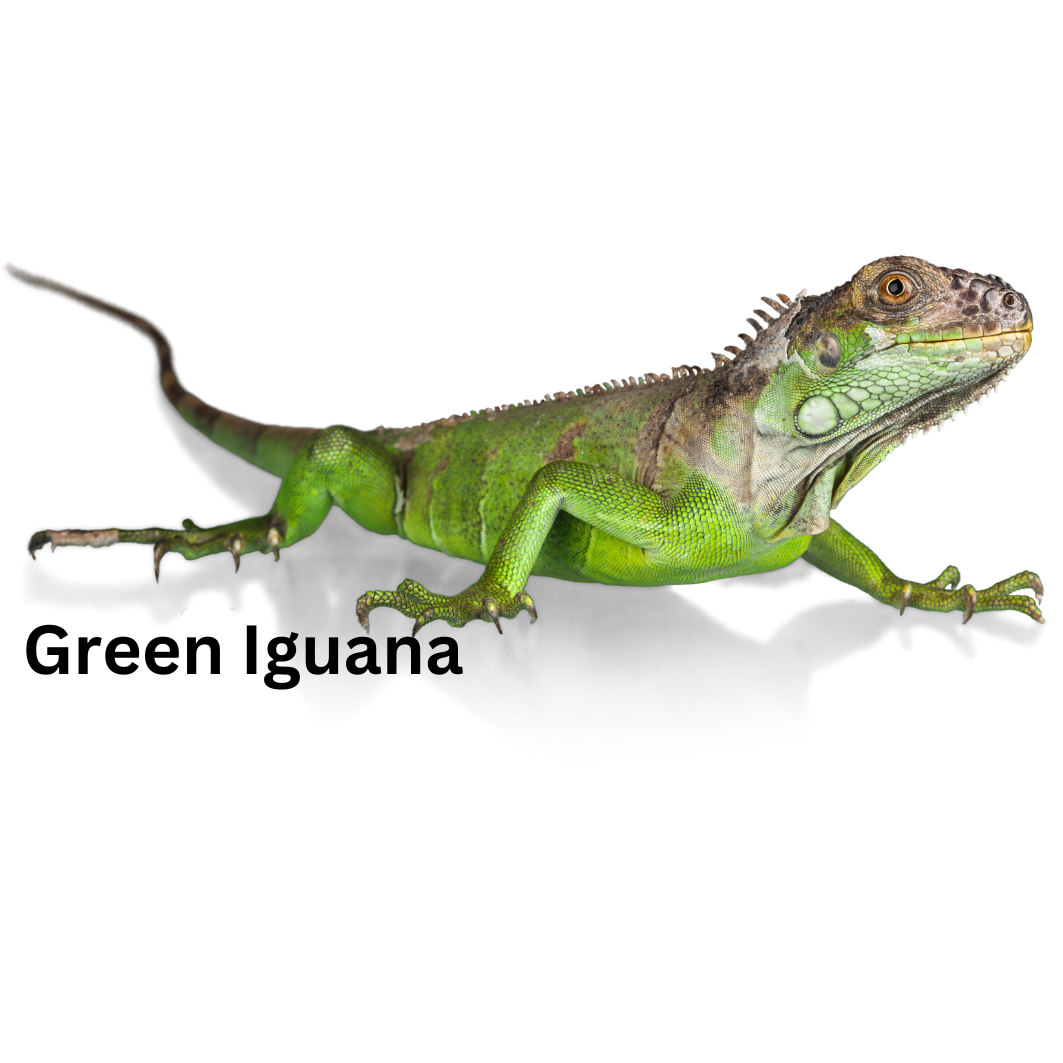
There are many uncommon pets that people legally keep, each with their unique care requirements and charms. Here are a few examples:
Mammals
Fennec Foxes:
These small desert foxes are known for their large ears and playful behavior. They require specialized care and a spacious environment.
Prairie Dogs:
These burrowing rodents are social and require a lot of interaction. They need a large enclosure with plenty of digging space.
Reptiles and Amphibians
Green Iguanas:
Green iguanas are large, arboreal lizards that require a spacious and warm environment with plenty of climbing opportunities.
Uromastyx:
Also known as spiny-tailed lizards, Uromastyx are herbivorous and thrive in hot, dry conditions.
Birds
Indian Ringneck Parakeets:
These medium-sized parrots are known for their ability to mimic human speech. They are intelligent and need a lot of social interaction.
Invertebrates
Giant African Land Snails:
These large snails are easy to care for and can be quite fascinating to observe. They need a warm, humid environment and a diet of fruits and vegetables.
Stick Insects:
These insects are masters of camouflage and can be quite interesting to watch. They require a tall enclosure with plenty of branches to climb on.
Fish and Aquatic Life
Seahorses:
Seahorses are unique and delicate creatures that need a specialized aquarium with gentle water flow and appropriate tank mates.
Freshwater Stingrays:
These rays are interesting and active fish that require a large aquarium with pristine water conditions.
Exotic Mammals
Kinkajous:
Also known as “honey bears,” these nocturnal mammals are playful and require a lot of space and a varied diet.
Wallabies:
These small marsupials need a large outdoor enclosure and a diet similar to that of kangaroos.
When considering an uncommon pet, it is essential to thoroughly research their care requirements, legal status in your area, and whether you can provide the appropriate environment and care they need.
This Page: Header and Footer Image DiviAI. All images Canva. All content DiviAi and ChatGPT. FAQ’s by ChatGpt.
Ready to Dive Deeper to Find the Perfect Pet?
Ask Butler!
Still have questions? Click on the Ask Butler icon in the bottom right and watch Butler fetch your answer!

Have a Pet Health Question?
Ask our virtual vet – VET ON CALL. Click on GREEN ICON BOTTOM LEFT.
Not a substitute for a real vet. If your pet is sick or injured please contact a local vet.

Vet On Call
When you purchase through links on our site, we may earn an affiliate commission.
FAQ’s: ChatGPT.com | Content: DiviAi, ChatGPT, Author | All Images: Canva.com, WikiCommoons | Site logo designed by author | Vet On Call and Butler Created by Author, powered by ChatGPT
Partner Sites Wordi Ask Me Bard Stir Discovr tweeted Deepfake Tattoo Chat Assistants Short Film Under Construction Pet Advice CEU’s Mecca
Ai Assistants: Go to ChatGPT.com. Enter the @ followed by name of bot Butler Vet On Call Ask Me 8 Stir Sum MY PY CEUQ My WP
Coming Soon PhysicianBurnout.com AiVanGogh.com MuhammadAi.com MisinformationAi.com FairyTaleGPT.com dot Rose Mo 请 (Qǐng)
Contact Us Email

